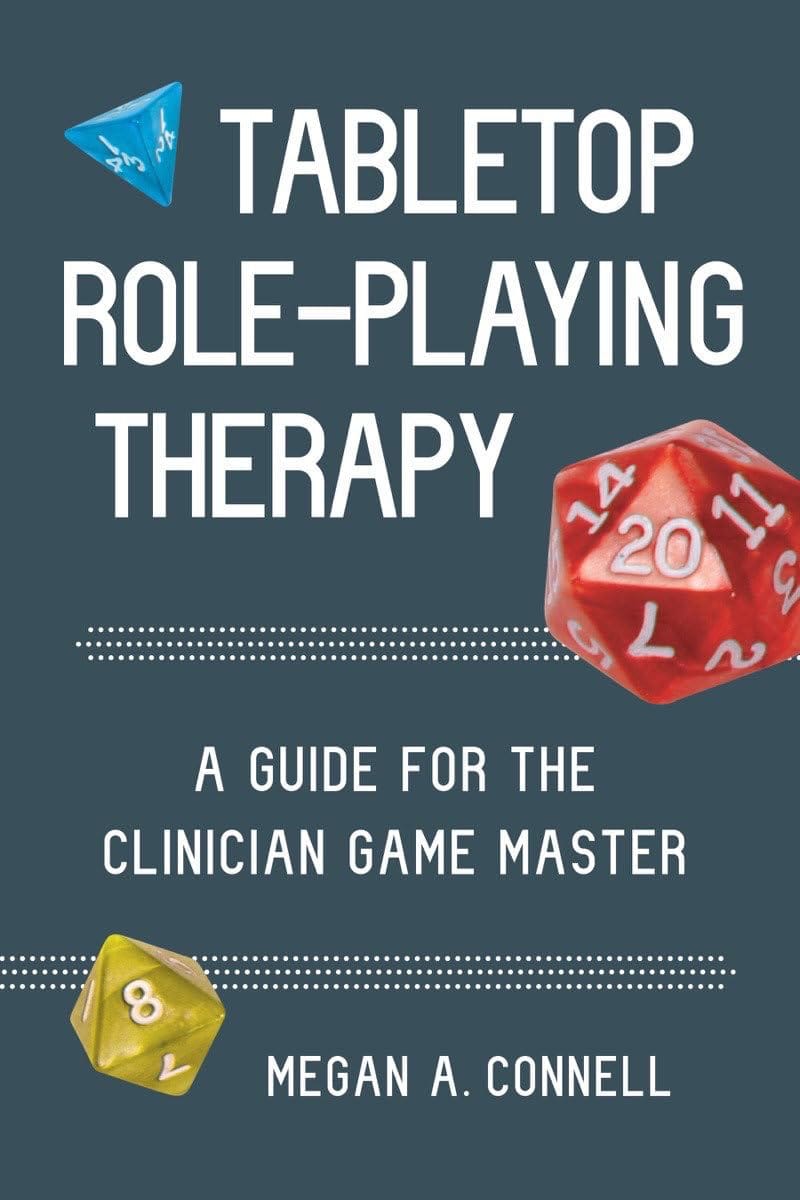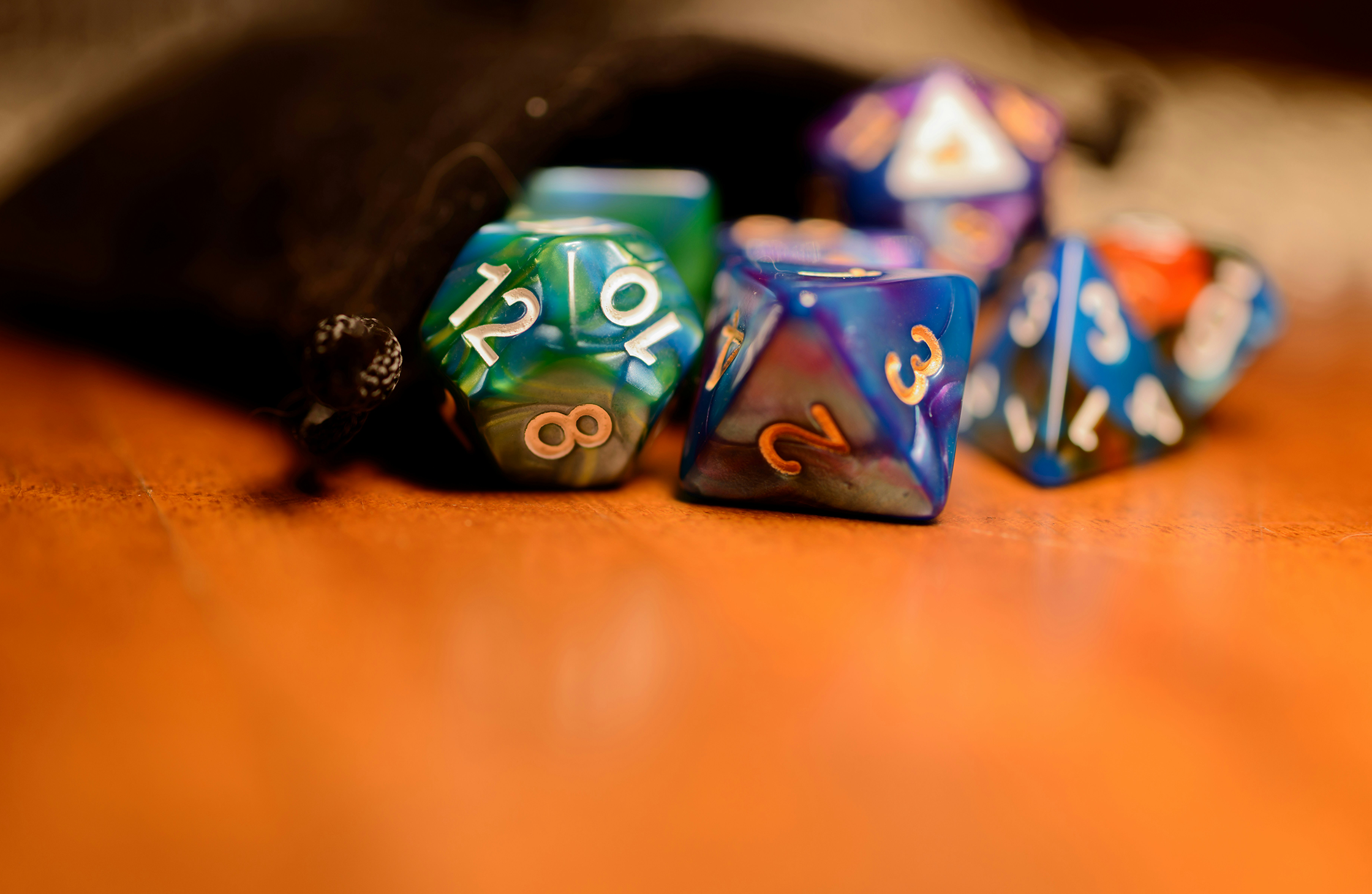Photo by Carlos Felipe Ramírez Mesa
Anyone who has played a tabletop RPG (role-playing game) like Dungeons and Dragons or Pathfinder has probably joked that it felt like therapy — that navigating through fantastical antics with a team of friends or family often feels cathartic — but I only recently learned just how true that is! Moments of triumph over fictional enemies are deeply satisfying and scratch the heroic urge that is inherent to being human.I recently sat down to talk with Megan Connell, a Doctor of Psychology and author of Tabletop Role-Playing Therapy: A Guide for the Clinician Game Master, in which she discusses how gaming and psychology intersect. The book is aimed at clinicians who want to grow their expertise and expand their therapeutic strategies; but even for the non-clinician, this book is incredibly helpful. It contains a plethora of resources for those looking for new therapeutic approaches.
For readers unfamiliar with how tabletop RPGs work, here’s some background: An RPG is a role-playing game where players move through a series of adventures while playing characters that (usually) they design themselves, based on specifications for that particular game. The Game Master (GM) — or, in the case of Dungeons and Dragons, the Dungeon Master — crafts the world and leads the players through the adventure. The GM also designs and plays a variety of non-playable characters (NPCs) which interact with the player characters (PCs), give them clues, and help them with problems (or sometimes cause problems that the players must overcome). Often, a mechanic such as rolling dice is used to decide the outcome of given interactions.
As players explore the world the GM has created for them, they choose how they navigate conversations, strategize quests, and interact with each other. There are countless opportunities to simulate the types of conversations needed in the real world, so players can build social skills that will serve them outside of the game. Adventures can also twist and turn in unexpected ways, requiring creative solutions and teamwork.
In her book, Dr. Connell discusses one of her patients (who she calls “Jane”) that was working to overcome their people-pleasing behavior. Jane had a hard time declining requests from others, even when they didn’t want to agree to the request. While attending Dr.Connell’s game, Jane was able to practice the skill of saying “no”. For example, an NPC could ask Jane to give them a ridiculous sum of money for a legendary weapon, which Jane (as their character) would be able to decline.
After playing for a while and practicing the skill, Jane was able to say “no” to someone in their real life when they received a call from a friend asking for a ride to the mall. Jane shared the interaction with Dr. Connell, saying: “I didn’t want to go to the mall, and I could feel myself getting ready to say ‘yes’. But then I thought, my DND character would say ‘no’, so I said ‘no’.”So, while many people may engage in tabletop RPGs for a bit of fun and silliness, the game functioned for Jane as an avenue to explore saying “no” in a protected and safe environment before translating the skill into their real life.

I also spoke with a local GM, Brendan Quinn, who works with a few different therapists as a Certified Therapeutic Game Master. He runs local therapeutic RPGs through Short Rest Therapy PLLC, and also runs RPGs remotely for therapists and players who don’t live in the area.
There are some similarities between RPG therapy and other group therapeutic modalities, but including the processing of client goals through gaming adds a layer of abstraction that can be incredibly helpful to players.
“I took Dr. Connell's course and have studied her research extensively,” says Quinn. “I've been running therapeutic games for over a year now, and have seen some amazing results in my players. I've had clients discover things about themselves — specifically as a result of playing — that they wouldn't have otherwise realized.”
Quinn gives an example of one player whose character in the game was getting ahead of the other players’ characters. “They kept having good luck, so their character was advancing faster than the others at the table,” he says. “Through that experience, they recognized that they struggled with gaining advantages in their real life that their peers didn't have.”
Because the client saw this playing out within the game, they were then able to work on it with their therapist (who oversees the RPG therapy), and look into why they process unfair advantages as a personal flaw. The therapist worked with that client to help them reframe these advantages, focusing on how they might be able to accept that they have some privileges, and how they may be able to use them to benefit others in a way that aligns with their values.
Players come into RPGs like these with therapeutic agendas that they and the overseeing clinician make the Therapeutic GM aware of, so that the GM can shape the game around working on those areas. Quinn describes how players can use in-game scenarios to this end:
When we create a scene that taps into something one or more of the players wants to work on specifically, the entire group supports them in experimenting with different solutions. That way, the PC can try out different reactions to scenarios to see how successful or unsuccessful they might be.
Most importantly though, we talk through what the PC and player are both experiencing as the encounter happens, regardless of outcome. Once the players can recognize their internal reactions, and abstract themselves from it, they have a better sense of how they can then act in accordance with both their emotions and their real-world values.
These kinds of clinical game settings could be the catalyst for each of us to make behavioral changes and add new tools and skills to our mental health toolbelts.
Dr. Connell mentions that it is important that non-clinicians do not attempt to run clinical games unless under the supervision of a clinician. If you are a player, check out Health Quest Gaming to get on the waitlist for clinical game sessions, or ask your therapist if they practice RPG therapy. If you are a clinician looking to gain new skills, search ‘RPG therapy training’ to find certification courses, or to find Certified Therapeutic Game Masters that can work with you. And definitely snag a copy of Dr. Connell’s book! (I recommend getting it through Kobo, which gives back to small bookstores.)
Quinn says he would be happy to speak with any local therapists to see if running games in their practice is something they'd be interested in. You can contact editor@tumbleweird.org if you would like to be connected with Brendan Quinn.
Christen works with Indie Game Origin on highlighting indie studios from around the globe. Instagram: indiegameorigin


